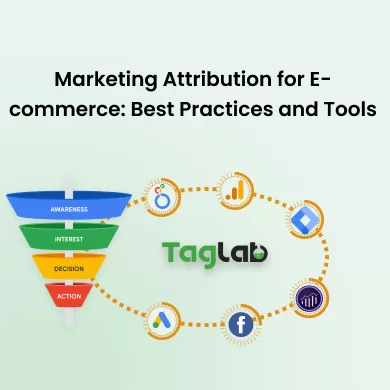Your cart is currently empty!
Total Sales Metric Definition
Posted by:
|
On:
|
Total Sales is a key performance indicator (KPI) that measures the total revenue generated from all sales transactions over a specific period. This metric helps businesses understand their overall revenue performance and evaluate the effectiveness of their sales and marketing strategies.
Detailed Explanation
What is Total Sales?
Total Sales refers to the sum of all revenue generated from selling goods or services. It includes all income from transactions, whether they are online, in-store, or through other sales channels. Total Sales is a fundamental metric for assessing a business’s financial health and growth.
How it Works?
Total Sales provides insights into the overall revenue performance of a business. By tracking total sales, businesses can analyze their revenue trends, identify peak sales periods, and assess the impact of sales and marketing strategies. This metric is often used in conjunction with other metrics such as gross profit, net profit, and return on investment (ROI) to evaluate overall business performance.
Types of Total Sales Metrics
- Gross Sales: The total revenue generated before any deductions such as returns, allowances, and discounts.
- Net Sales: The total revenue generated after deducting returns, allowances, and discounts.
- Channel-Specific Sales: The total revenue generated from specific sales channels (e.g., online, in-store).
Illustrative Scenarios
Examples
- If a business generates $100,000 in revenue from online sales and $50,000 from in-store sales in a month, the Total Sales for that month is $150,000.
- If a retail store generates $200,000 in revenue but has $10,000 in returns and $5,000 in discounts, the Net Sales is $185,000.
Segmentation
Analyzing Total Sales by different segments (e.g., by channel, product category, or time period) can provide deeper insights. For example, comparing sales across different channels can help optimize sales strategies and resource allocation.
Factors Influencing Total Sales
- Product Quality and Pricing: High-quality products and competitive pricing can drive higher sales.
- Marketing and Promotions: Effective marketing campaigns and promotions can boost sales.
- Seasonality: Certain times of the year (e.g., holidays, sales events) can significantly impact sales volume.
- Customer Service: Excellent customer service can lead to repeat purchases and higher sales.
- Sales Channels: The performance of different sales channels (e.g., online, in-store) can influence total sales.
Strategies to Improve Total Sales
- Enhancing Product Offerings: Continuously improve and expand product offerings to meet customer needs.
- Optimizing Pricing Strategies: Implement competitive pricing strategies to attract and retain customers.
- Effective Marketing Campaigns: Launch targeted marketing campaigns to reach potential customers and boost sales.
- Improving Customer Experience: Provide excellent customer service and a seamless shopping experience to encourage repeat purchases.
- Expanding Sales Channels: Utilize multiple sales channels to reach a broader audience and increase sales.
Total Sales Benchmarks
Total Sales benchmarks vary by industry and type of business. For example:
- Retail: Benchmarks can vary based on product categories and store locations.
- E-commerce: Typically aim for higher total sales due to the global reach of online sales.
- Subscription Services: Often have consistent total sales due to recurring revenue from subscriptions.
Comparing your Total Sales against industry standards can help gauge performance and set realistic goals.
Tools for Measuring Total Sales
- Google Analytics: Provides insights into revenue and sales metrics for websites.
- Shopify Analytics: Offers tools to track sales metrics for e-commerce websites.
- Adobe Analytics: Provides comprehensive tracking and analysis of sales performance.
- Salesforce: Offers tools to track and manage sales performance for businesses.
Common Pitfalls and Mistakes
- Ignoring Market Trends: Not keeping up with market trends can result in missed sales opportunities.
- Poor Product Quality: Low-quality products can lead to high return rates and lower net sales.
- Ineffective Marketing: Ineffective marketing campaigns can result in low sales performance.
- Overlooking Customer Feedback: Not addressing customer feedback can lead to dissatisfaction and lower sales.
- Inconsistent Monitoring: Not regularly monitoring and analyzing sales data can result in missed opportunities for improvement.
Frequently Asked Questions
What is Total Sales?
Total Sales measures the total revenue generated from all sales transactions over a specific period. It includes all income from transactions, whether they are online, in-store, or through other sales channels.
Why is Total Sales important?
Total Sales is important because it helps businesses understand their overall revenue performance and evaluate the effectiveness of their sales and marketing strategies.
How can I improve my Total Sales?
Improving Total Sales can be achieved through enhancing product offerings, optimizing pricing strategies, launching effective marketing campaigns, improving customer experience, and expanding sales channels.
What factors influence Total Sales?
Factors influencing Total Sales include product quality and pricing, marketing and promotions, seasonality, customer service, and the performance of different sales channels.
What is a good benchmark for Total Sales?
A good benchmark for Total Sales varies by industry. Retail benchmarks can vary based on product categories and store locations, e-commerce typically aims for higher total sales due to the global reach of online sales, and subscription services often have consistent total sales due to recurring revenue. Comparing against industry benchmarks can help set realistic goals.



